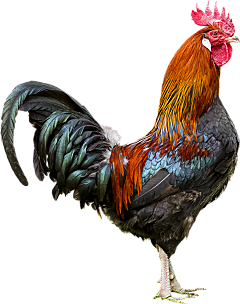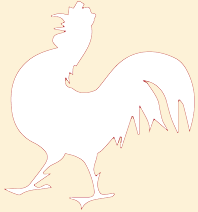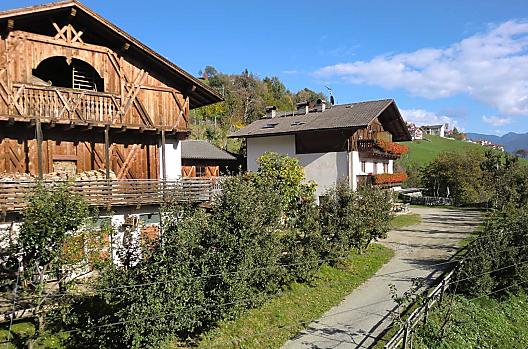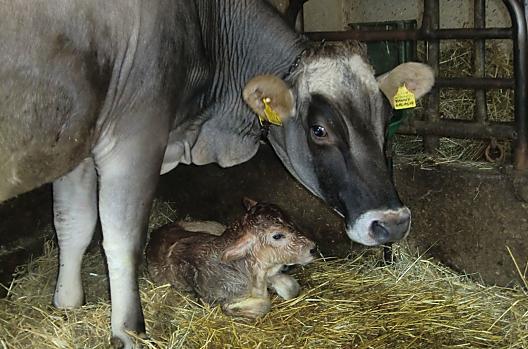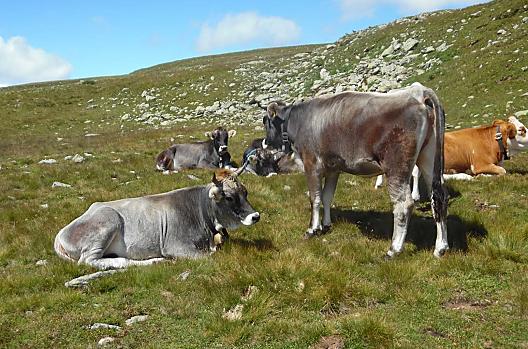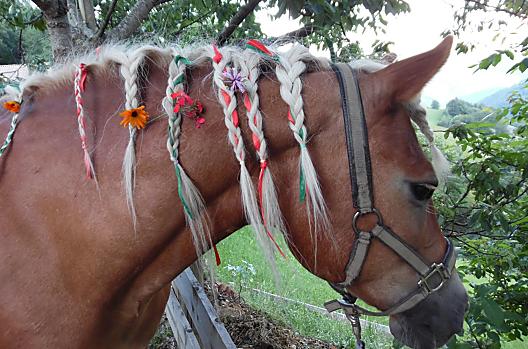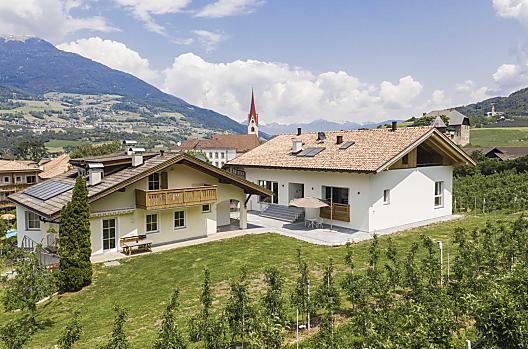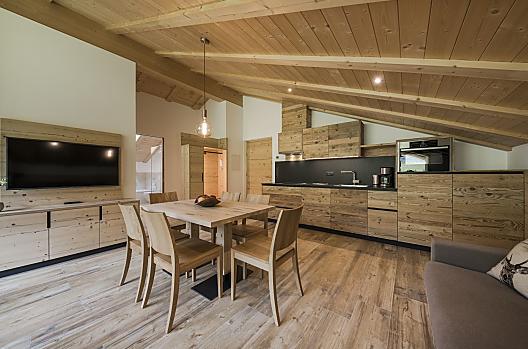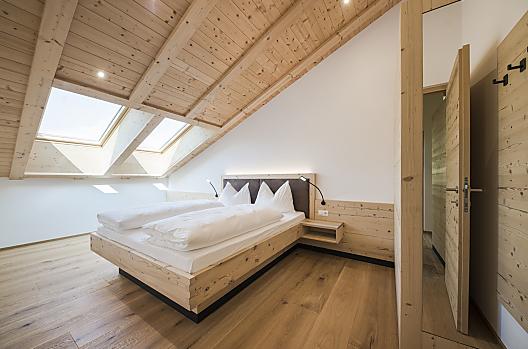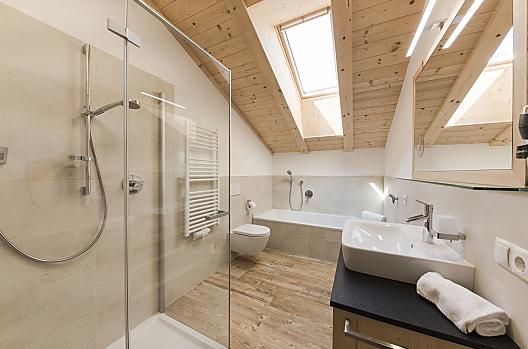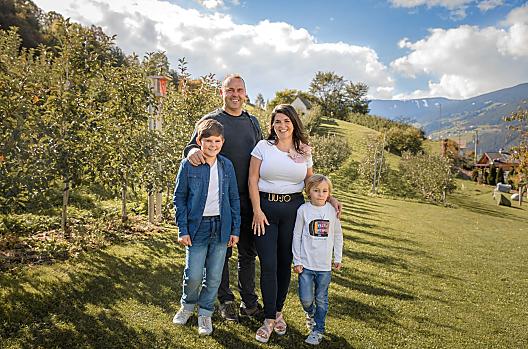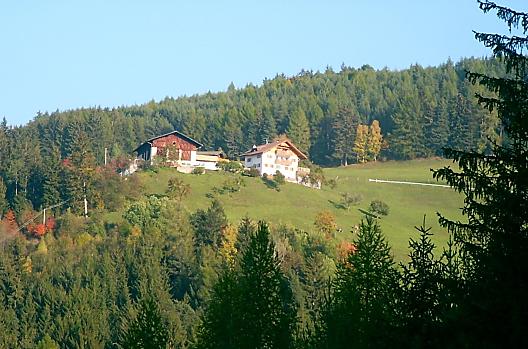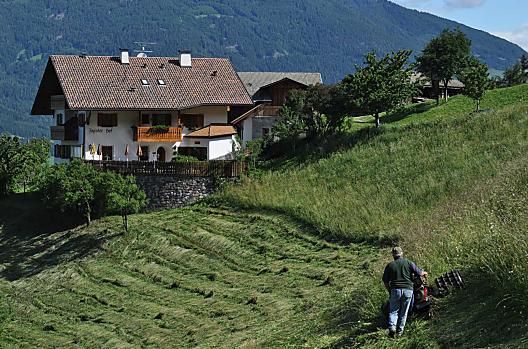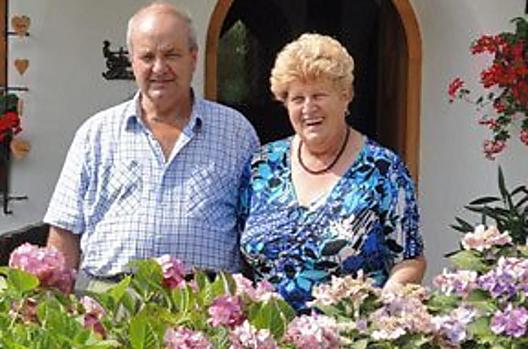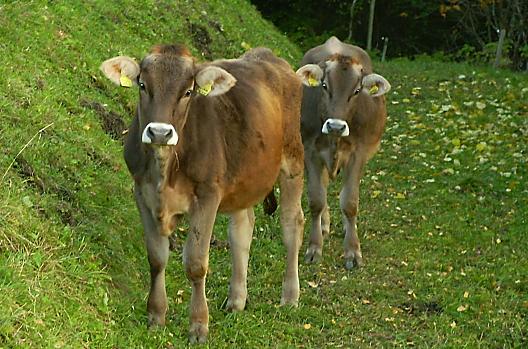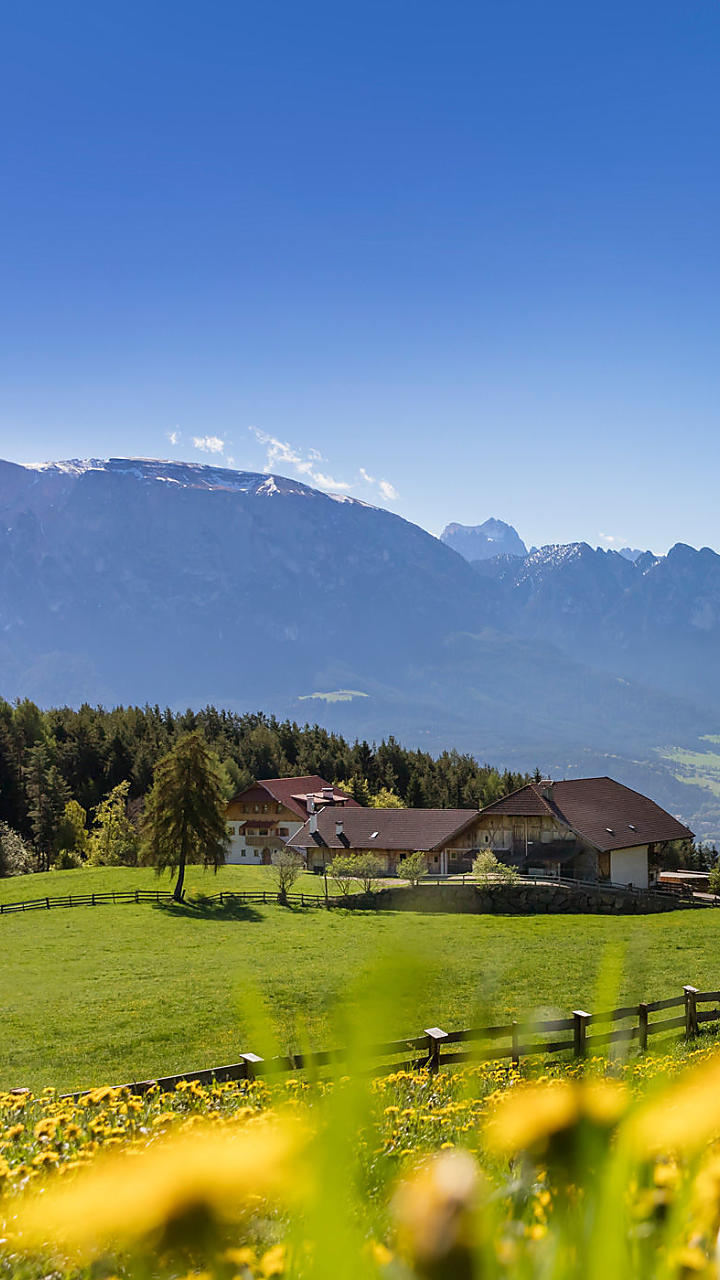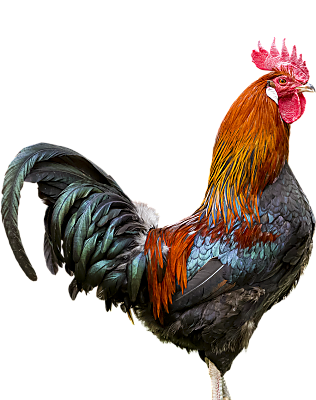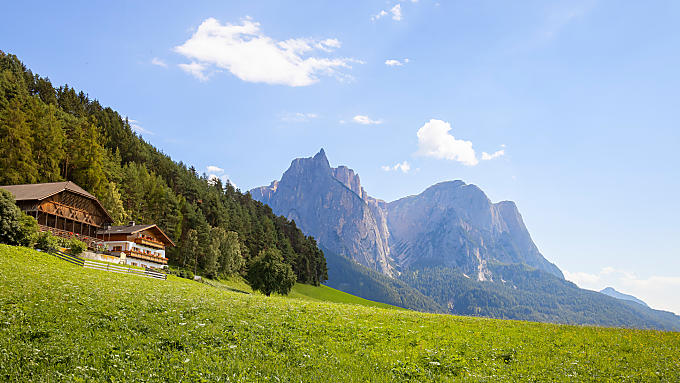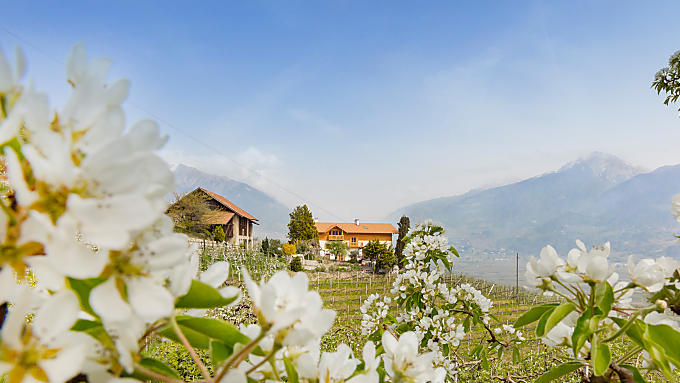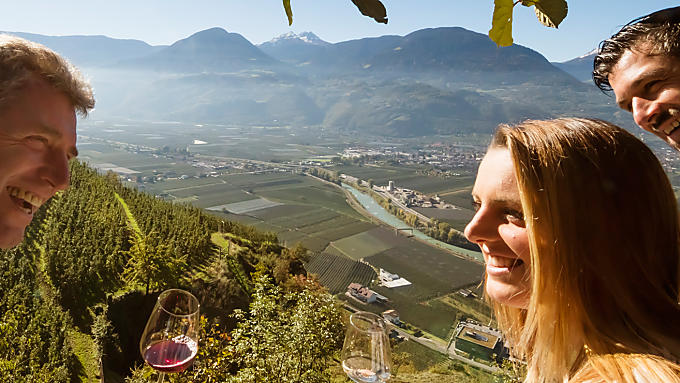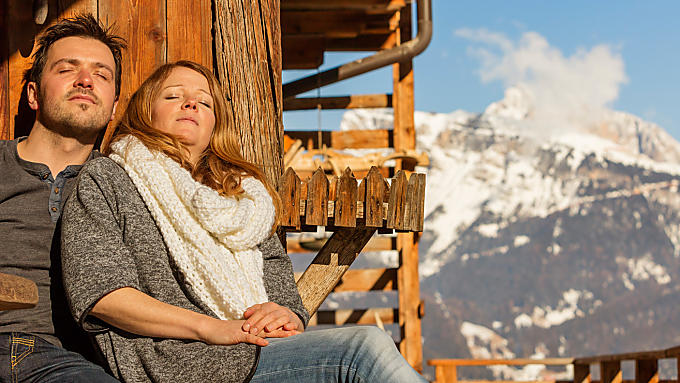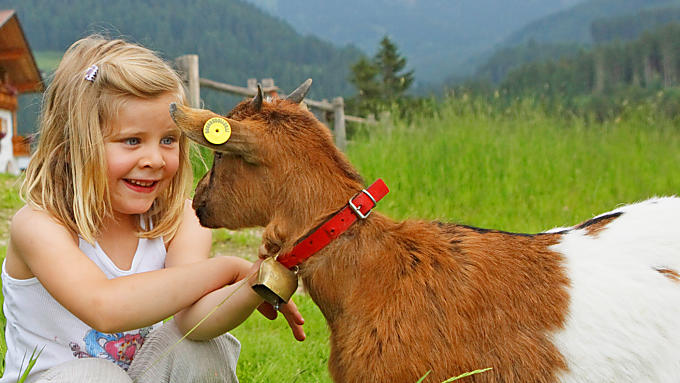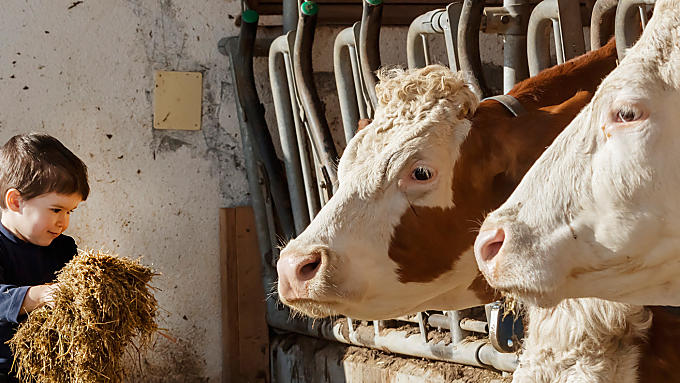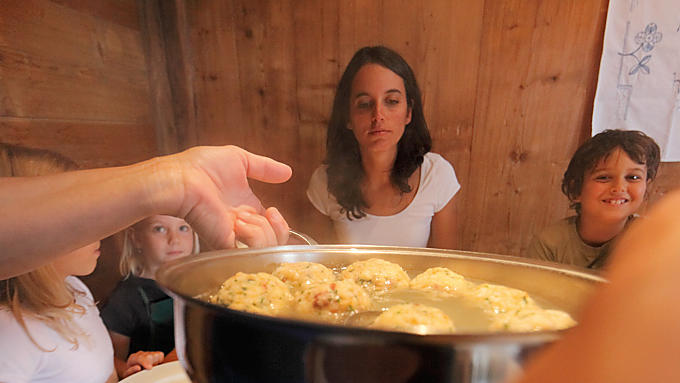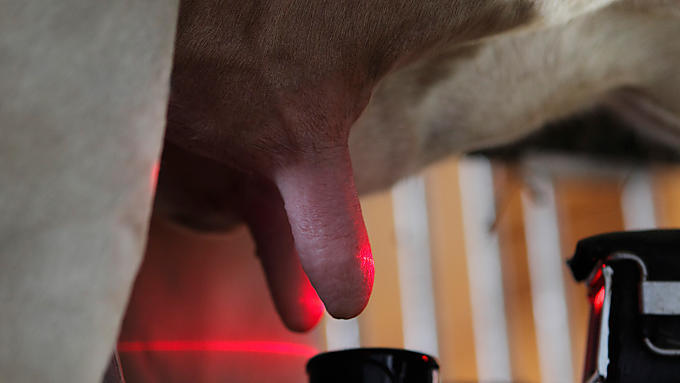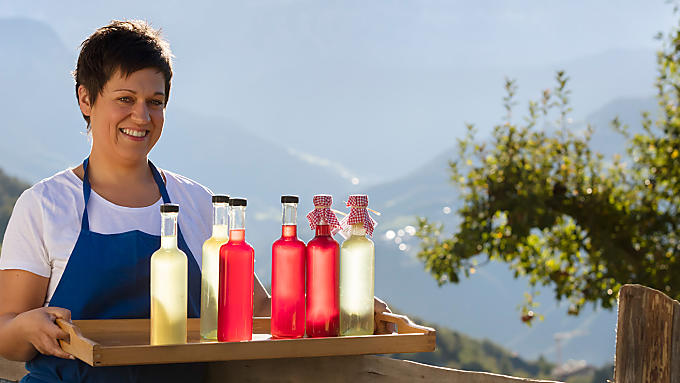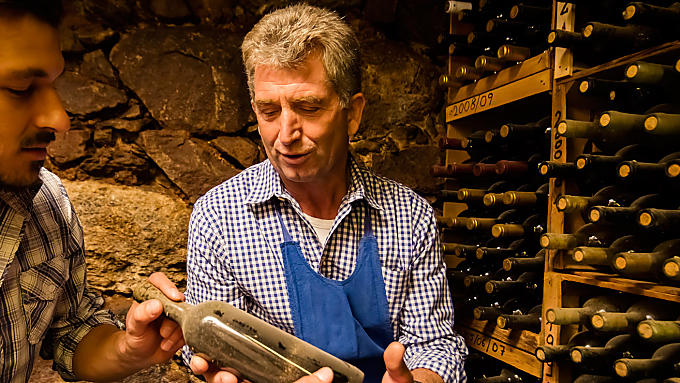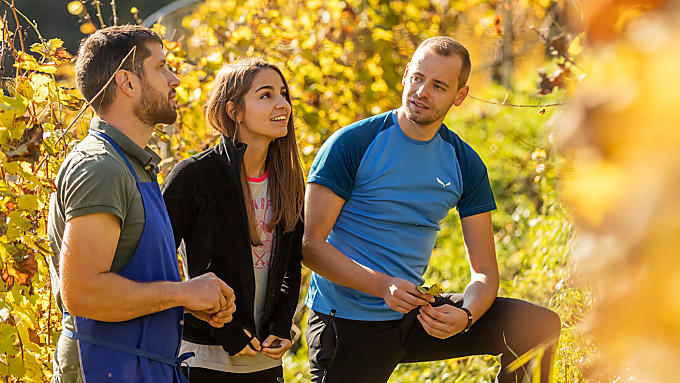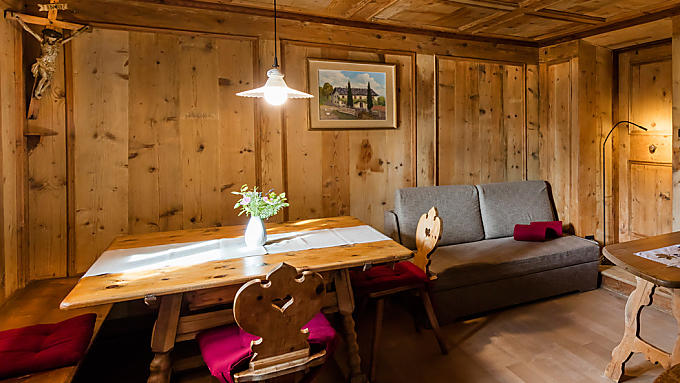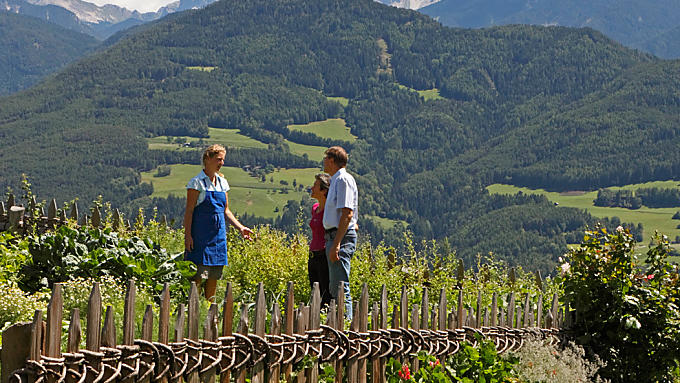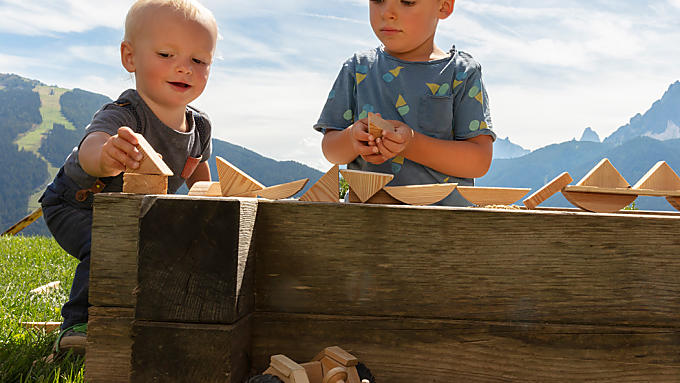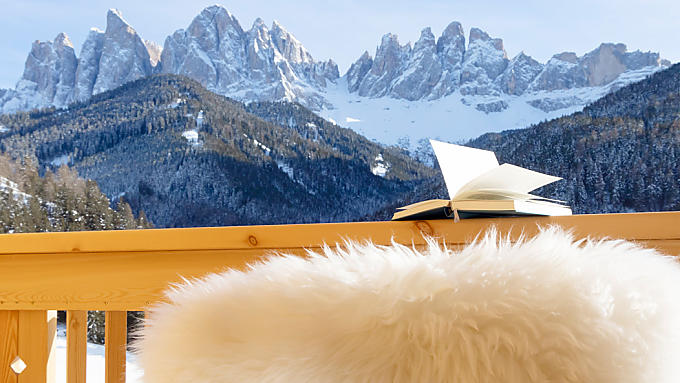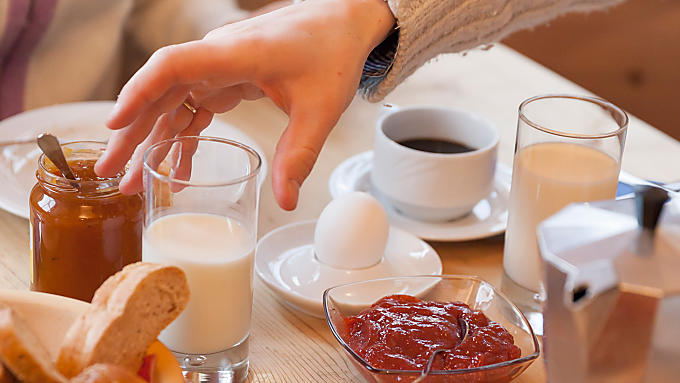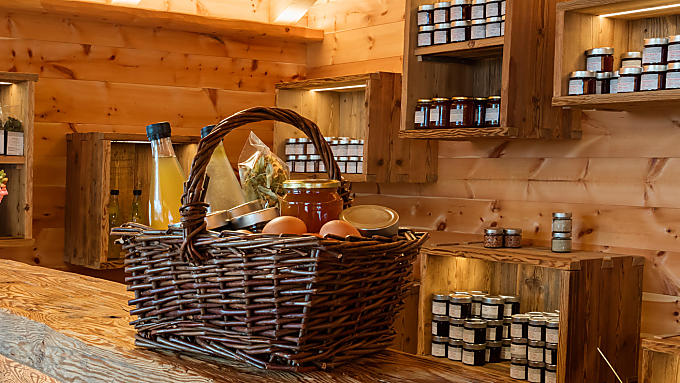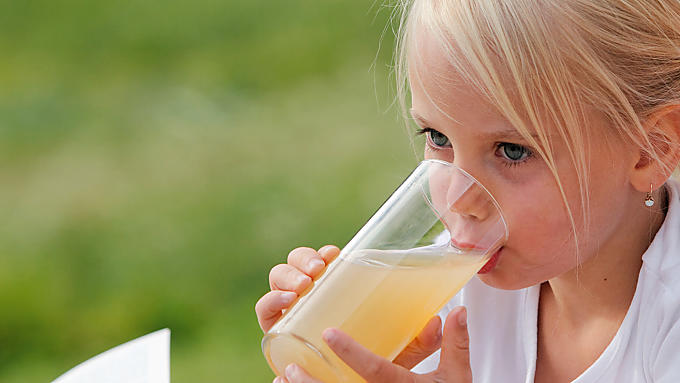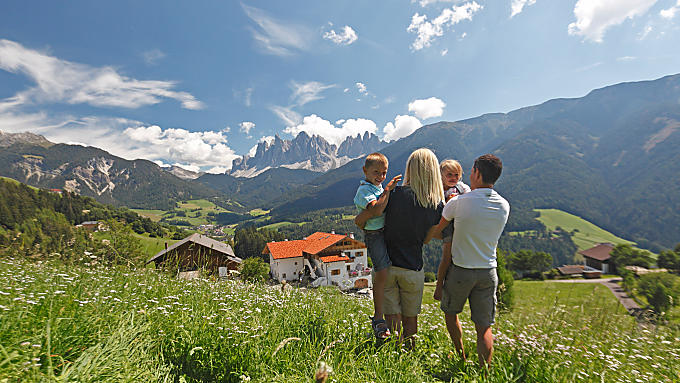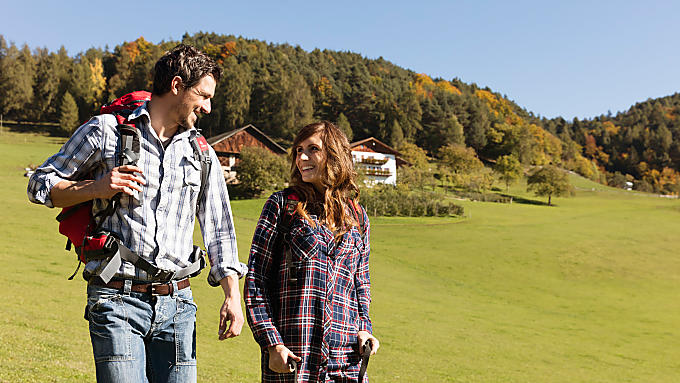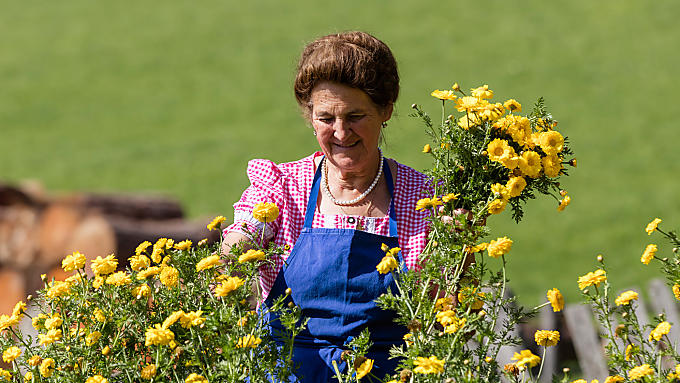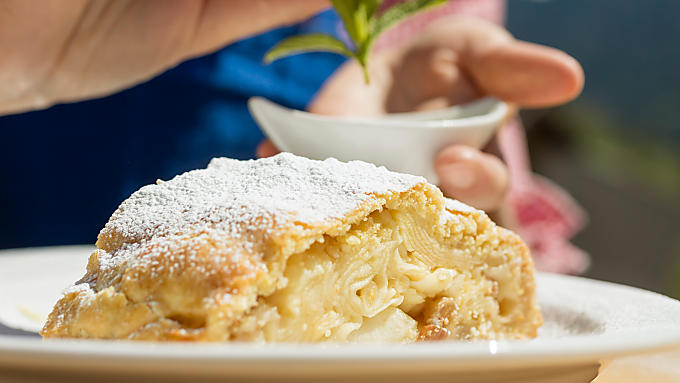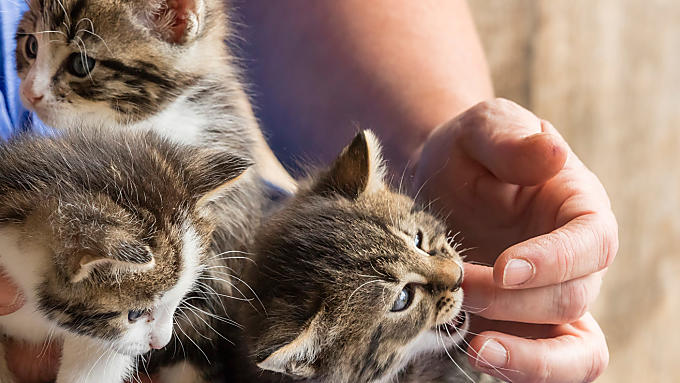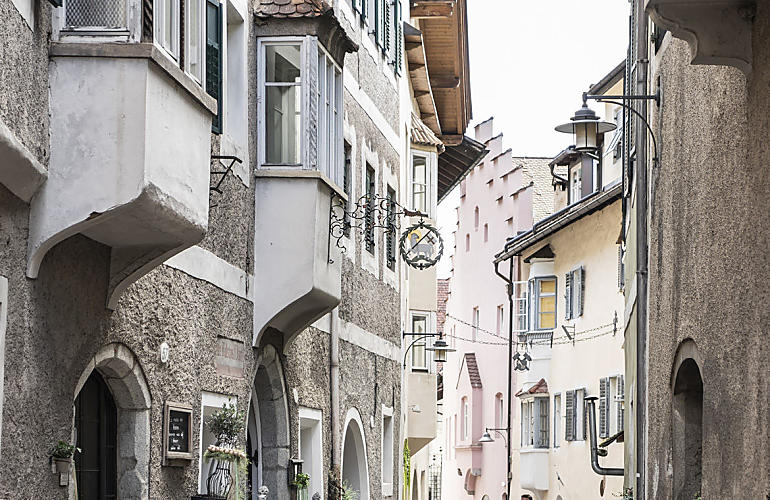
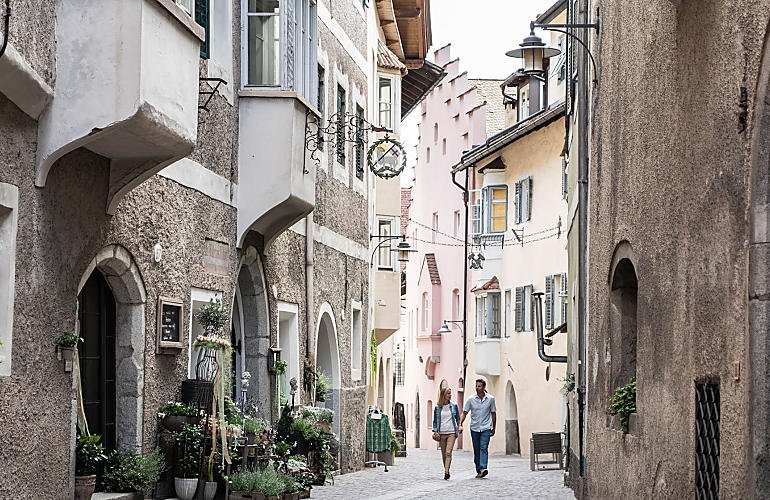
Pretty as a picture
Holiday location
Farm Holidays in Klausen
A Farm Holiday in the artists' town of Klausen in central Eisacktal valley will take you a one of the prettiest old town centres in Italy.
The little town of Klausen lies around ten kilometres south of Brixen and counts around 5,200 inhabitants. The villages of Verdings/Pardell and Latzfons, lying on a medium high plateau affording fantastic views, and Gufidaun on the opposite side of the valley at the start of Villnößtal valley, are also part of the municipality, too.
A Farm Holiday in the artists' town of Klausen in central Eisacktal valley will take you a one of the prettiest old town centres in Italy.
The little town of Klausen lies around ten kilometres south of Brixen and counts around 5,200 inhabitants. The villages of Verdings/Pardell and Latzfons, lying on a medium high plateau affording fantastic views, and Gufidaun on the opposite side of the valley at the start of Villnößtal valley, are also part of the municipality, too.
The sunny slopes, with their vineyards and chestnut groves and Alpine larch forests and meadows higher up, are typical of Klausen and its surrounding area. Säben Abbey, which has towered above Klausen for centuries, is a symbol of the town.
The artists' town
The name of Klausen, coming from the Latin claudere, which means something like 'to close', is just used to refer to the geographical position of the town at a narrow point of the Eisacktal valley. Klausen is, in fact, not closed at all. This place on the Brenner road has always been a popular stopping point for travellers and artists. In the 15th century, the painter Albrecht Dürer portrayed the town on the Eisack river from the slopes of the Tschanberg mountain. Nowadays, Klausen marks the start of a pleasant walk to this vantage point, the 'Dürerstein' stone. At the end of the 19th century, skilled and prominent artists such as Franz Defregger, Alexander Koester or Albin Egger-Lienz moved to the town and their works are displayed in the town museum of Klausen today. The contemporary writer Andreas Maier turns the town of Klausen into the centre of shadowy goings-on in his novel of the same name.
A stroll through the Middle Ages
Anyone wishing to discover the medieval part of the town from a holiday flat or room in Klausen would love a stroll through the crooked alleyways of the old town with its narrow town houses, gabled facades, wide bay windows, artistic inn signs and stony archways. You can see why Klausen recently made the list of the prettiest old towns in Italy according to the organisation 'I Borghi più belli d'Italian'. It has always been steeped in history and attractions. Guests on holiday in Klausen shouldn't miss a trip to see the Loreto treasure of the Spanish queen Maria Anna von der Pfalz in the town museum or the churches of the Capuchin Monks, the Apostles or the Spitalkirche church.
The Säben Promenade or the 'Kreuzweg' path lead up from the centre of Klausen to Säben Abbey. The mountain of Säben, where the abbey is located, was the bishop's seat from the 6th century to around 960. The current form of the abbey itself goes back to the 17th century and is not open to the public. However, the Lady Chapel, the Church of our Lady, the Abbey church, the Jubilee Fountain anad the Holy Cross Church may all be visited.
Klausen, home to 'Törggelen'
Round, brown and tasty: whether roasted, as a filling for 'Krapfen' pastries and chocolate hearts, or in liquid form as chestnut beer, the focus is on sweet chestnuts, or 'Keschtn', at 'Törggelen' time in the kitchens and alleyways of Klausen. The chestnut is a vital part of the menu during the Eisacktal valley's fifth season.
In Klausen, this season is introduced with a special festival. Traditional 'Gasseletörggelen' event transforms the centre of Klausen into a real pleasure strip. All that local cooking has to offer concerning chestnuts and the chestnut harvest may be tasted here and the crowning of the Eisacktal 'Törggelen' queen is worth watching.
The village of Verdings awaits with a slightly less well-known, yet equally tasty, treat. The 500-person-strong village above Klausen is famous for its flour produced from 'Dörrbirnen', or dried pears. This powdered pear was once used instead of sugar. A round walk near Verdings dedicated to this flour is interesting, as well as tasting regional dishes made from powdered pear.
The sunny slopes, with their vineyards and chestnut groves and Alpine larch forests and meadows higher up, are typical of Klausen and its surrounding area. Säben Abbey, which has towered above Klausen for centuries, is a symbol of the town.
The artists' town
The name of Klausen, coming from the Latin claudere, which means something like 'to close', is just used to refer to the geographical position of the town at a narrow point of the Eisacktal valley. Klausen is, in fact, not closed at all. This place on the Brenner road has always been a popular stopping point for travellers and artists. In the 15th century, the painter Albrecht Dürer portrayed the town on the Eisack river from the slopes of the Tschanberg mountain. Nowadays, Klausen marks the start of a pleasant walk to this vantage point, the 'Dürerstein' stone. At the end of the 19th century, skilled and prominent artists such as Franz Defregger, Alexander Koester or Albin Egger-Lienz moved to the town and their works are displayed in the town museum of Klausen today. The contemporary writer Andreas Maier turns the town of Klausen into the centre of shadowy goings-on in his novel of the same name.
A stroll through the Middle Ages
Anyone wishing to discover the medieval part of the town from a holiday flat or room in Klausen would love a stroll through the crooked alleyways of the old town with its narrow town houses, gabled facades, wide bay windows, artistic inn signs and stony archways. You can see why Klausen recently made the list of the prettiest old towns in Italy according to the organisation 'I Borghi più belli d'Italian'. It has always been steeped in history and attractions. Guests on holiday in Klausen shouldn't miss a trip to see the Loreto treasure of the Spanish queen Maria Anna von der Pfalz in the town museum or the churches of the Capuchin Monks, the Apostles or the Spitalkirche church.
The Säben Promenade or the 'Kreuzweg' path lead up from the centre of Klausen to Säben Abbey. The mountain of Säben, where the abbey is located, was the bishop's seat from the 6th century to around 960. The current form of the abbey itself goes back to the 17th century and is not open to the public. However, the Lady Chapel, the Church of our Lady, the Abbey church, the Jubilee Fountain anad the Holy Cross Church may all be visited.
Klausen, home to 'Törggelen'
Round, brown and tasty: whether roasted, as a filling for 'Krapfen' pastries and chocolate hearts, or in liquid form as chestnut beer, the focus is on sweet chestnuts, or 'Keschtn', at 'Törggelen' time in the kitchens and alleyways of Klausen. The chestnut is a vital part of the menu during the Eisacktal valley's fifth season.
In Klausen, this season is introduced with a special festival. Traditional 'Gasseletörggelen' event transforms the centre of Klausen into a real pleasure strip. All that local cooking has to offer concerning chestnuts and the chestnut harvest may be tasted here and the crowning of the Eisacktal 'Törggelen' queen is worth watching.
The village of Verdings awaits with a slightly less well-known, yet equally tasty, treat. The 500-person-strong village above Klausen is famous for its flour produced from 'Dörrbirnen', or dried pears. This powdered pear was once used instead of sugar. A round walk near Verdings dedicated to this flour is interesting, as well as tasting regional dishes made from powdered pear.
Farm search
Holiday farms in Klausen
3 reasons
A holiday in Klausen
The Old Town: medieval
buildings and narrow streets
Europe's highest pilgrimage
spot: Latzfonser Kreuz
On a rocky perch:
Säben Abbey
Active in Klausen
On holiday in Klausen you don't have to do without the advantages of town life or nature's charms.
Throughout the year, Klausen makes a great base for all kinds of excursions.
On holiday in Klausen you don't have to do without the advantages of town life or nature's charms.
Throughout the year, Klausen makes a great base for all kinds of excursions.
The Eisacktal cycle and walking path, leading to nearby Brixen or the province capital of Bozen, may be reached right from the central market square. If a mountain bike is your preferred means of travel, there are challenging trails in the surrounding medium-high mountains.
Mountain fans and conquerors of mountain peaks will find Klausen and the villages in the municipality the ideal base for pursuing their passions in peace and quiet. Klausner Hütte, Latzfonser Kreuz or the waterfall at Gufidaun are just a few of the many destination options.
Nearby winter sports resorts, such as the Seiser Alm pasture or Grödental valley, are great for skiing, cross-country skiing or sledging.
Farms with holiday flats and rooms are available in Klausen as well as the villages of Gufidaun, Latzfons and Verdings.

